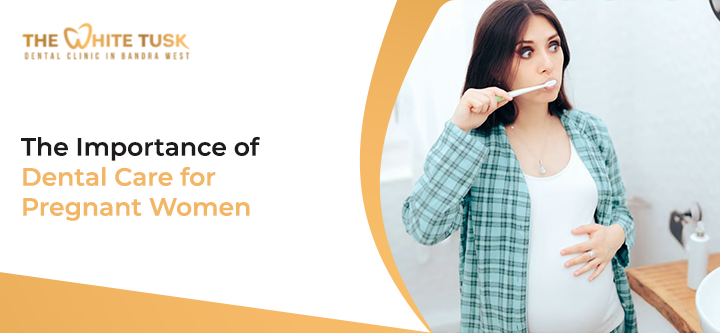
Pregnancy is a time of significant change in a woman’s body, and these changes can have a profound impact on oral health. Hormonal fluctuations can increase the risk of gum disease, and morning sickness can lead to enamel erosion due to stomach acid. Moreover, poor dental health during pregnancy has been linked to potential risks for the baby, including preterm birth and low birth weight. Therefore, understanding and prioritizing dental care during pregnancy is crucial for both the mother’s and the baby’s well-being.
The mouth is a window to the body’s overall health, and this is particularly true during pregnancy. Poor oral health can contribute to systemic inflammation, which may affect pregnancy outcomes. Moreover, certain bacteria in the mouth have been associated with preterm birth and other complications. Therefore, maintaining good dental health is not only important for a beautiful smile but also for a healthy pregnancy. Research has shown that there is a bi-directional relationship between oral health and overall health, especially during pregnancy. Gum disease, for instance, can be an indicator of other health issues, and it can also exacerbate conditions like diabetes, which are of particular concern during pregnancy.
Significant hormonal changes, particularly increases in estrogen and progesterone levels, occur during pregnancy and can affect various aspects of a woman’s health, including oral health. These hormonal fluctuations make the gums more sensitive and prone to inflammation. This condition, known as pregnancy gingivitis, is characterized by swollen, tender, and bleeding gums.
Pregnancy gingivitis is a common condition, affecting a large proportion of pregnant women due to their heightened hormonal levels. It’s crucial for expecting mothers to be aware of this condition, as, if left untreated, gingivitis can escalate into a more serious form of gum disease known as periodontitis. This advanced stage of gum disease can lead to tooth loss and other significant health issues.
More importantly, research has established a link between severe gum disease and adverse pregnancy outcomes. Specifically, periodontitis has been associated with an increased risk of preterm birth and delivering a baby with a low birth weight. These outcomes are concerning because they can lead to various health challenges for the newborn, including developmental problems and a higher susceptibility to chronic conditions later in life.
Adequate nutrition is essential for both the developing baby and the mother’s oral health. Here are five key points on the role of nutrition in dental health during pregnancy:
Preventive measures are important to mitigate the risks associated with dental health during pregnancy. These include brushing twice a day with fluoride toothpaste, flossing daily, and using an antimicrobial mouthwash to control bacterial growth. Regular dental check-ups are also vital to monitor and address any issues early on.
Many women wonder if it’s safe to undergo dental treatments while pregnant. The good news is that most dental procedures, including cleanings, fillings, and emergency treatments, can be performed safely during pregnancy. It’s important to inform your dentist about your pregnancy so they can take the necessary precautions, such as using a lead apron during X-rays and avoiding certain medications.
The second trimester is often considered the safest time to undergo non-emergency dental treatments. During this period, the risk of miscarriage has decreased, and the risk of preterm labor has not yet increased. However, it’s always best to consult with both your dentist and obstetrician before scheduling any treatments.
Morning sickness can be challenging for many pregnant women, and frequent vomiting can lead to dental issues. The acid in vomit can erode tooth enamel, leading to sensitivity and decay. Rinsing with a fluoride mouthwash or water after vomiting can help neutralize the acid. It’s also advisable to wait for about an hour before brushing to avoid brushing away the protective enamel that the acid has softened.
Dental care during pregnancy is not just about maintaining a beautiful smile; it’s about ensuring the overall health of both the mother and the baby. By understanding the unique dental needs during pregnancy and taking proactive steps to care for oral health, expectant mothers can minimize risks and enjoy a healthier pregnancy. Regular dental check-ups, good oral hygiene practices, and a balanced diet are key components of a comprehensive dental care routine for pregnant women. Remember, a healthy mouth is a vital part of a healthy body, and never more so than during pregnancy.
Great advice, Dr. Tekchandani! 🦷💖 Dental care is so important during pregnancy. From hormonal changes to diet, taking care of oral health helps both mom and baby stay healthy! 🍼🌿 #PregnancyCare #HealthySmiles #OralHealthMatters